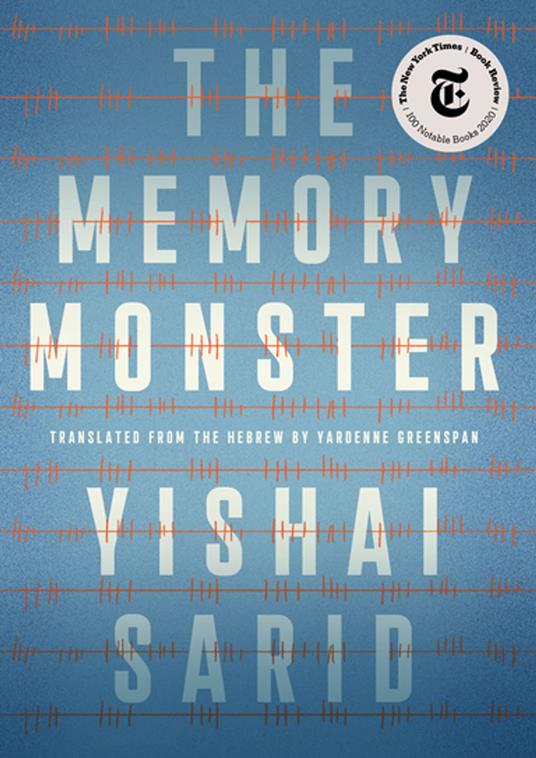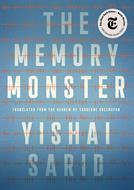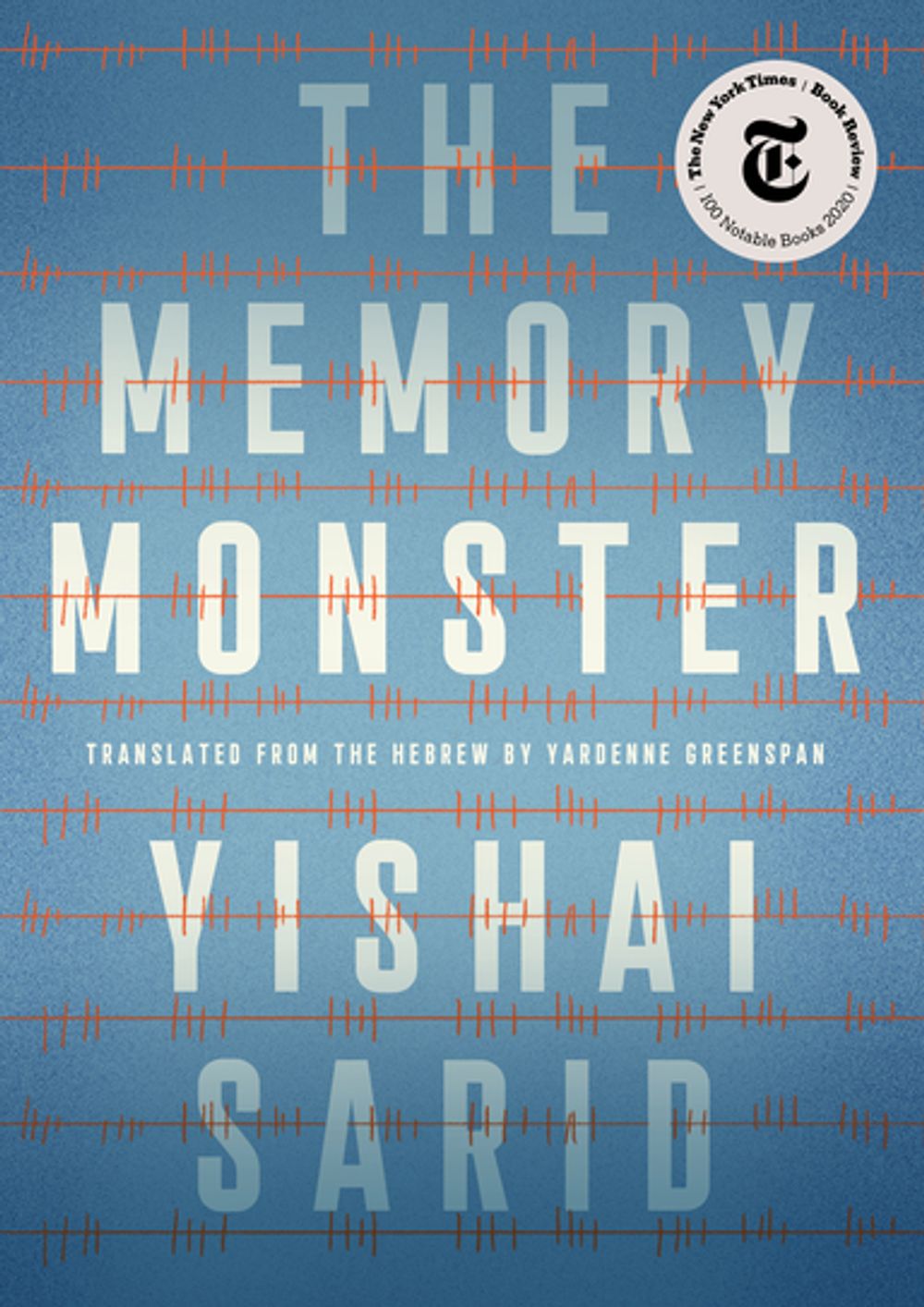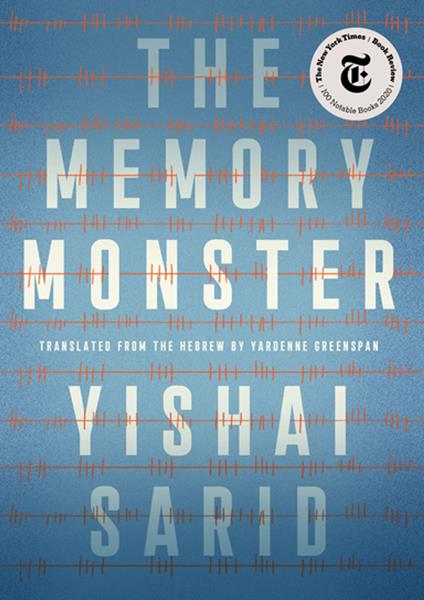The Memory Monster
“A brilliant short novel that serves as a brave, sharp-toothed brief against letting the past devour the present” (The New York Times Book Review Editors’ Choice), Yishai Sarid’s The Memory Monster is a harrowing parable of a young historian who becomes consumed by the memory of the Holocaust. A NEW YORK TIMES BOOK REVIEW 100 NOTABLE BOOKS OF 2020 SELECTION Written as a report to the chairman of Yad Vashem, Israel’s memorial to the victims of the Holocaust, our unnamed narrator recounts his own undoing. Hired as a promising young historian, he soon becomes a leading expert on Nazi methods of extermination at concentration camps in Poland during World War II and guides tours through the sites for students and visiting dignitaries. He hungrily devours every detail of life and death in the camps and takes pride in being able to recreate for his audience the excruciating last moments of the victims’ lives. The job becomes a mission, and then an obsession. Spending so much time immersed in death, his connections with the living begin to deteriorate. He resents the students lost in their iPhones, singing sentimental songs, not expressing sufficient outrage at the genocide committed by the Nazis. In fact, he even begins to detect, in the students as well as himself, a hint of admiration for the murderers—their efficiency, audacity, and determination. Force is the only way to resist force, he comes to think, and one must be prepared to kill. With the perspicuity of Kafka’s The Trial and the obsessions of Delillo’s White Noise, The Memory Monster confronts difficult questions that are all too relevant to Israel and the world today: How do we process human brutality? What makes us choose sides in conflict? And how do we honor the memory of horror without becoming consumed by it? Propelled by the narrator’s distinctive voice, the novel is an original variation on one of the most essential themes of post-Holocaust literature: While countless writers have asked the question of where, or if, humanity can be found within the profoundly inhumane, Sarid incisively shows how preoccupation and obsession with the inhumane can take a toll on one’s own humanity…. it is, if not an indictment of Holocaust memorialization, a nuanced and trenchant consideration of its layered politics. Ultimately, Sarid both refuses to apologize for Jewish rage and condemns the nefarious forms it sometimes takes. A bold, masterful exploration of the banality of evil and the nature of revenge, controversial no matter how it is read.” —Kirkus Reviews, Starred Review “[A] record of a breakdown, an impassioned consideration of memory and its risks, and a critique of Israel’s use of the Holocaust to shape national identity…. Sarid’s unrelenting examination of how narratives of the Holocaust are shaped makes for much more than the average confessional tale.” —Publishers Weekly “Reading The Memory Monster, which is written as a report to the director of Yad Vashem, felt like both an extremely intimate experience and an eerily clinical Holocaust history lesson. Perfectly treading the fine line between these two approaches, Sarid creates a haunting exploration of collective memory and an important commentary on humanity. How do we remember the Holocaust? What tolls do we pay to carry on memory? This book hit me viscerally, emotionally, and personally. The Memory Monster is brief, but in its short account Sarid manages to lay bare the tensions between memory and morals, history and nationalism, humanity and victimhood. An absolute must-read.” —Julia DeVarti, Literati Bookstore (Ann Arbor, MI) “In Yishai Sarid’s dark, thoughtful novel The Memory Monster, a Holocaust historian struggles with the weight of his profession…. The Memory Monster is a novel that pulls no punches in its expl
-
Autore:
-
Traduttore:
-
Anno edizione:2022
-
Editore:
-
Formato:
Formato:
Gli eBook venduti da Feltrinelli.it sono in formato ePub e possono essere protetti da Adobe DRM. In caso di download di un file protetto da DRM si otterrà un file in formato .acs, (Adobe Content Server Message), che dovrà essere aperto tramite Adobe Digital Editions e autorizzato tramite un account Adobe, prima di poter essere letto su pc o trasferito su dispositivi compatibili.
Cloud:
Gli eBook venduti da Feltrinelli.it sono sincronizzati automaticamente su tutti i client di lettura Kobo successivamente all’acquisto. Grazie al Cloud Kobo i progressi di lettura, le note, le evidenziazioni vengono salvati e sincronizzati automaticamente su tutti i dispositivi e le APP di lettura Kobo utilizzati per la lettura.
Clicca qui per sapere come scaricare gli ebook utilizzando un pc con sistema operativo Windows




